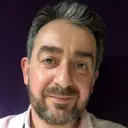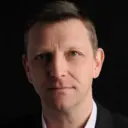UNHCR 'deeply shocked and saddened' by deathspublished at 17:10 GMT 25 November 2021
 Image source, Getty Images
Image source, Getty ImagesMany people are still in makeshift camps in northern France
The UN's Refugee Agency (UNHCR) says it is "deeply shocked and saddened" by the deaths of at least 27 people in the Channel yesterday.
In a statement, external, the agency says all states must "commit to placing human life, rights and dignity at the centre and forefront of discussions in trying to find solutions".
It adds that many people on the move come from areas of conflict, and that those "in need of international protection must be able to access it, in a fair and efficient manner".
The UN agency has warned for some time that the closing off of legal routes to apply for asylum - for example at embassies - would lead those fleeing persecution to seek dangerous and illegal ways to get to safer countries.
"This is the largest loss of life recorded in this seaway in recent times – and one that could have been avoided," the statement said.


















